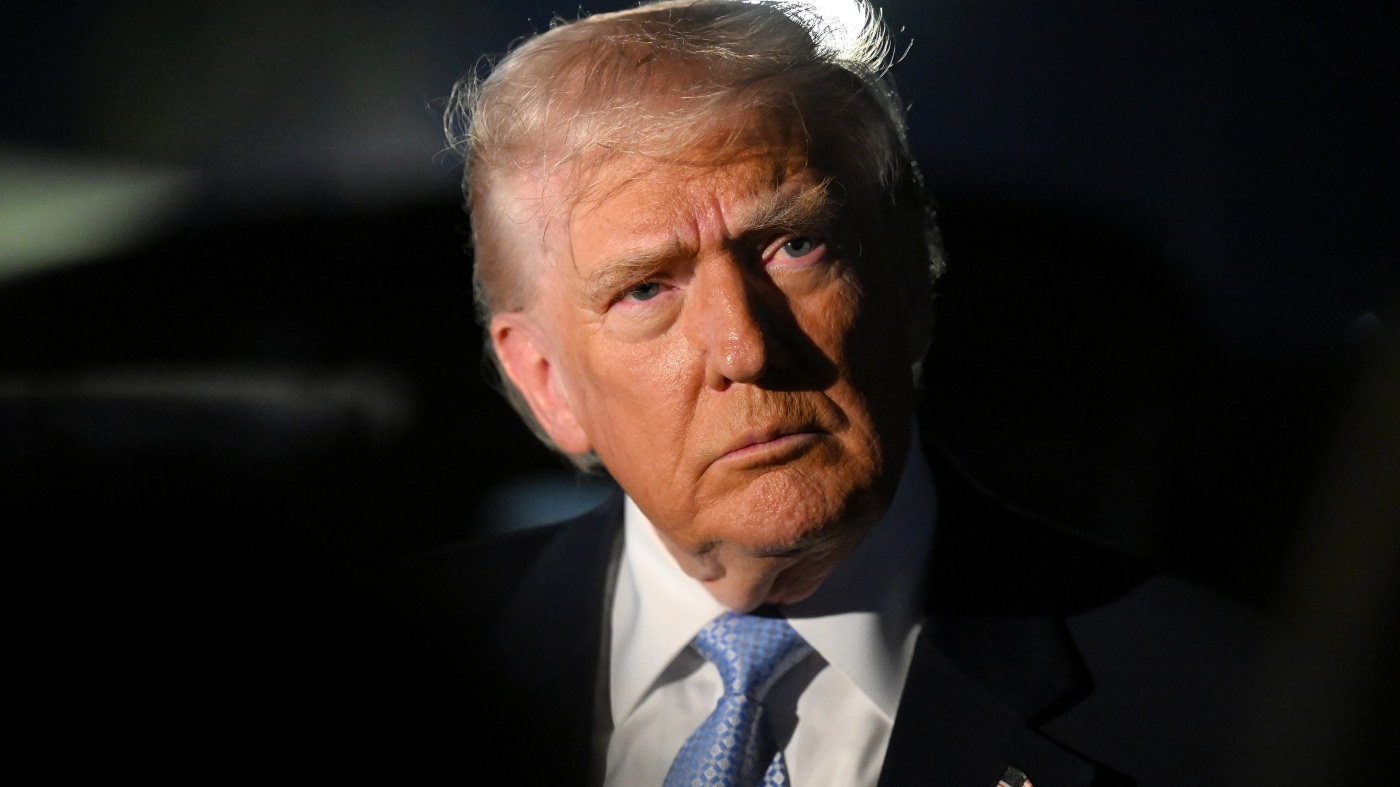You mean, it was during the Suez War when Britain, France and Israel began invading Egypt.
Yeah. No American president I've worked for, from Jimmy Carter to George W. Bush, has ever applied this kind of pressure. Trump essentially said, “You do what I say. I am the most pro-Israel president in the history of the world. You do what I say. I gave you a document that is, by and large, a very pro-Israel deal that does not create a Palestinian state. It doesn't satisfy your right wing, but I'm not really interested in them. Make it or leave it.” What we don't know is whether it was “or else.”
You mean what Trump said to Netanyahu in the Oval Office last week?
Exactly. Axiosa Barak Ravid and Mark Caputo reported that Trump essentially said that if Netanyahu did not agree to this, “we will leave you.” Biden had three pressure points from which he could capitalize. He could condition or limit US military aid to Israel. In fact, he didn't do this. He could introduce his own UN Security Council resolution criticizing Israel, or vote for someone else's and start signaling in international forums that he has no intention of defending Israel. He didn't. And he could unilaterally reach out to the Palestinians, change his economic aid policy, and join the more than one hundred and forty other countries that recognize Palestinian statehood. He didn't.
Trump, in my opinion, would not have done any of this if Netanyahu had not agreed. But the agreement was based on Netanyahu's fears that if he did not sign, Trump would campaign on the claim that Netanyahu was mismanaging US-Israel relations, “undermining my interests and yours.” Netanyahu is now focused on re-election, likely in the spring of 2026. He needs Trump to win. Trump is more popular in Israel than Netanyahu, and Netanyahu cannot break with him. And Israel is more dependent than ever on the United States, both militarily and politically, so this relationship is more important. So we don't know what Trump actually threatened. I suspect he didn't need to make any threats. I suspect Netanyahu understands who he is dealing with.
So you're saying this is a little different from what it was in 1956, when the Eisenhower administration actually threatened the Israelis with sanctions and threatened the British government with the collapse of the pound. Eisenhower and John Foster Dulles, his secretary of state, made credible threats. You say that Trump may not have actually threatened Netanyahu, but there was a feeling that Netanyahu needed Trump.
Yes, there is no longer a mind meld that more or less took place. Trump has essentially agreed, both tactically and strategically, with Netanyahu's policies in the Gaza Strip over the past nine months.
But it seemed to me that both Bibi and Vladimir Putin were very smart in the way they played with Trump, which is essentially they allowed him to criticize them from time to time or criticize the policies of Israel or Russia. You saw Trump do this with the Gaza famine. But both men knew for sure that Trump was not going to continue what he started and remain consistent.
Yes, he wasn't focused. He was inattentive.
So why not continue this strategy now if you are Netanyahu?
Trump is more exposed, more interested, more identified with last Monday's peace efforts than with the Anchorage summit where he discussed Ukraine with Putin, or, frankly, the January ceasefire between Israel and Hamas. He is the chairman of the board. This was a plan developed in Washington, essentially developed by Trump. Some enterprising journalists will at some point compile a list of what Trump actually knew about the Israeli strike on Qatar on September 9 and when he knew it. [The Times reported that Trump learned about the strike “as it was happening.”] But I think Trump had actually already come to the conclusion that the war had to end, because he was disappointed with Netanyahu, and because he thought the public image of the war was very bad, and he thought he needed to give it a shot – not through a partial deal, but through a comprehensive deal.
One more thing: Over the past nine months, Netanyahu has seen Trump do things that no American president, much less anyone I've ever worked for, has ever done in and around Israel. He began direct dialogue with Hamas in March this year. He made a deal with the Houthis in Yemen, which the Israelis learned about only after the fact. Despite Israel's objections, it lifted sanctions on the new Syrian government. And he said he wanted negotiations with Iran.
So while Trump's policies toward Israel itself have been incredibly favorable, I think Netanyahu got Trump right. We don't know if Trump threatened to pull the three levers that Biden didn't pull.
We also simply don't know enough about Trump's relationship with the Gulf states. You mentioned the Qatari plane deal – I don't want to be naive and pretend that things like this and others like them won't seem important when historians write about it thirty years from now.
Essentially, are you referring to Trump's investments in the Persian Gulf?
I don't know, but I don't want to pretend that these things are potentially unimportant here.







